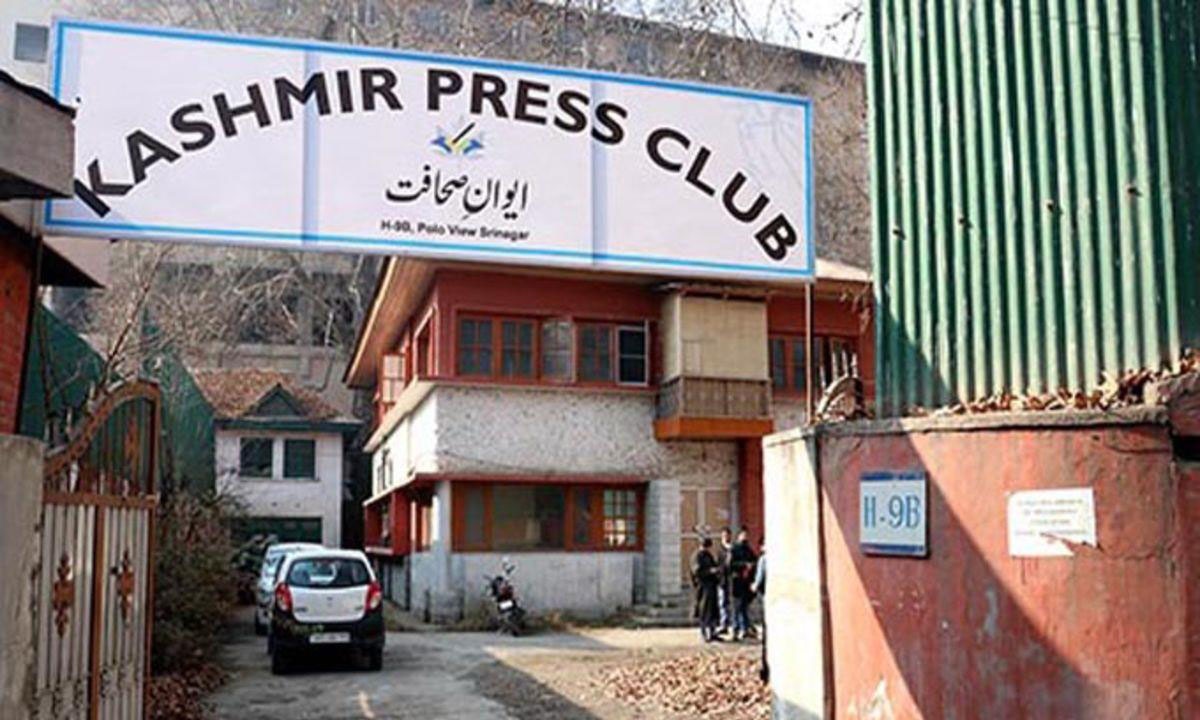Srinagar: Jammu and Srinagar are divided on the issue of the new media policy drafted by UT administration in the first week of June. “We are with the country. Any journalist encouraging separatism and anti-national sentiments should be booked under Public Safety Act (PSA),” a prominent Jammu editor told this reporter. He claimed that some Kashmir-based journalists recently approached them for being part of any future response to this new policy and claimed that they have rejected such a move by Kashmiri journalists.
“Basically, Jammu is ready to oppose anything being done by the people of Kashmir. Journalists of Jammu feel that Kashmir-based newspapers, especially a few prominent newspapers in Urdu and English, have been responsible for some unrests and violence,” said a Jammu working journalist, currently working with a national newspaper.
There is palpable fear among the media fraternity in Kashmir valley as the new media policy recently announced by UT administration has given more teeth to bureaucrats and police to decide what is sedition and anti-national about reports from Kashmir.
“No joint meeting has been conducted so far both by working journalists and local editors as fear is creeping in, with police sending summons to many scribes for some previous stories,” said a local editor of aUrdu daily being published from Srinagar for more than 40 years now.
“To report from Kashmir is now dangerous. If people protest and demand action from police about any incident and we report. it can be sedition for police and officials,” said a local reporter working with a news channel. He claimed that recently he was summoned by police for a story he has filed immediately after the clampdown of security forces in Srinagar after 5 August last year.
Recently the UT administration framed anew media policy and the official spokesman said that it has been drafted to create a sustained narrative on the functioning of the government in the media. According to this new policy, the government has all the powers to decide what “anti-social and anti-national” news is.
Most of the people connected with local newspapers and even the prominent reporters working for many national newspapers and channels have fears that they can be booked by authorities. “The new policy should be amended by the government if they want the media to function freely in Kashmir valley,” said one of the reporters working for a newspaper that was recently booked and questioned by police.
According to different organizations of local editors, they were not consulted by the UT administration before they announced the new media policy. “We were not even informed. There was no consultation or discussion with editors and prominent journalists working from Kashmir. It will further shrink the space for journalism and forreporting in Kashmir,” Manzoor Anjum, editor of Urdu daily Uqab told to this newspaper.
Two prominent editors of English dailies from Kashmir valley said that the new media policy was not acceptable and they have come to the conclusion that it has been framed to “finish the local media” and “bring all working journalists at the mercy of bureaucrats and police”.
What is most objectionable to local editors and journalists is the verification and investigation by police. The new media policy announced on June 2, 2020, says that there would be a “background check” of newspaper owners, publishers and journalists “with the assistance of the relevant authorities” before a publication can be empanelled.
A senior government official said that already they were looking for such content in all the published material in Kashmir valley and they were working with many security agencies to address such issues. He admitted that some journalists were questioned in the recent past for publishing “fake news”.
Told by this reporter that most media people in Kashmir have fears about the new policy, he said, “It is not an ordinary place; we are fighting a proxy war in Kashmir. We have to check all the possibilities of breach of peace and most of such activities in the recent past were being done by circulating fake news.”
The new media policy has clearly indicated that government advertisement support would be stopped to any publication if the officials report that the publication was circulating any news deemed objectionable by them. Police are free to book editors and reporters under different provisions of law and even arrest them.
Hundreds of newspapers are being published from Kashmir valley and they have no financial support other than government advertisements. Kashmir has no private sector and private advertisements are very rare in the local newspapers here. So, financial considerations also are forcing local editors to tread cautiously and not to make the authorities, especially bureaucrats and police officials, angry.
“We are yet to hold a meeting on this issue and we will give the response in the coming times,” said Shuj-ul-Haq, President of Kashmir Press Club.

